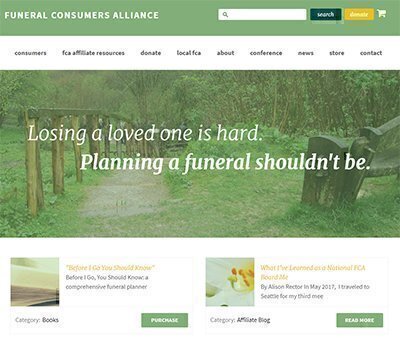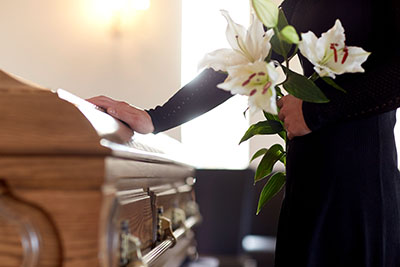Click below to listen to our Consumerpedia podcast episode on how to navigate planning a funeral.
Grieving for a loved one is acutely difficult just after the loss. It is not a time when you want to sit across the desk from a salesperson in a high-pressure, time-sensitive situation and make important and expensive choices. You’re vulnerable to making hasty, costly decisions that might not make sense if you had the perspective you’d get by having a little more time.
Funeral homes provide important services, but they are businesses with a goal of maximizing each sale. They make money by selling products and services, some of which you and your family may not want, need, or be able to afford.
We review the many choices you have when a loved one dies. You’ll find resources for getting appropriate services at a reasonable price. Read this when there is no immediate need, to get a frame of reference should the need suddenly arise.
In addition, think about making advance decisions for yourself and your loved ones based both on your expressed preferences and the emotional needs of your survivors.
It’s difficult for many people to do, but pre-planning your own funeral is sensible and thoughtful. Your input for those final decisions can comfort your survivors.
Imagine the more common alternative: A grieving family must respond on-the-spot to a long list of questions from a funeral director. The funeral director is at ease in situations of death, while the family is distraught and knows little or nothing about the choices or what they cost. The funeral director may subtly manipulate the family’s grief and guilt to encourage extravagant purchases. This situation, far too common, explains why most U.S. funerals and burial arrangements cost between $7,000 and $10,000. There is nothing wrong with an expensive funeral, if that’s what the family wants. But many families that might prefer a simple dignified ceremony end up with something lavish and costly.
We report what our undercover shoppers found when they priced out three typical funeral arrangements. We also review your basic choices and how to make them.









